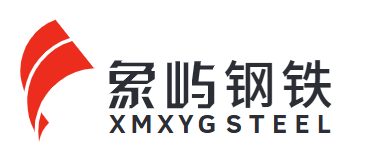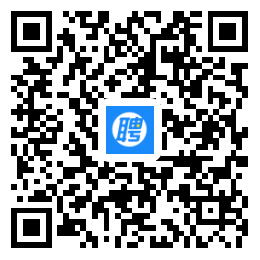職位描述
供應鏈英語醫療
End-to-End Control Tower Job Description for Radioactive Products Tracking
Position Overview
The Control Tower for Radioactive Products ensures seamless, compliant, and safe end-to-end logistics operations for nuclear medicine products. This role focuses on real-time tracking, regulatory adherence, risk mitigation, and cold chain integrity for time-sensitive radioactive shipments. Responsibilities span from order initiation to final delivery, prioritizing safety protocols, regulatory compliance, and rapid escalation for critical incidents.
Core Responsibilities
? 1. End-to-End Shipment Monitoring o Track radioactive pharmaceuticals (e.g., radiopharmaceuticals, isotopes) across all logistics milestones: ? Production & Packaging: Validate compliance with radiation safety protocols (e.g., shielding, labeling).
? ? Customs Clearance: Manage specialized documentation (e.g., IAEA/NRC permits, transport licenses).
? ? Transportation: Monitor carrier adherence to radioactive material transport regulations (e.g., DOT/IATA/ADR guidelines).
? ? Last-Mile Delivery: Ensure timely handover to medical facilities, prioritizing short half-life products.
2. Cold Chain & Radiation Safety Compliance o Verify temperature-controlled logistics (2–8°C or -20°C) using IoT sensors and GPS-enabled devices.
o Monitor radiation exposure levels during transit and trigger alerts for deviations beyond permissible limits.
3. Regulatory & Documentation Management o Maintain records for radioactive material licenses, import/export permits, and emergency response plans.
o Ensure proper labeling (e.g., UN2910/Type A packaging, trefoil symbols) and documentation (e.g., transport index calculations).
4. Risk Management & Incident Response o Identify risks impacting delivery timelines (e.g., customs delays, equipment failures, radiation leaks).
o Activate emergency protocols for incidents (e.g., spillage, temperature excursions) and coordinate with safety officers.
o Collaborate with nuclear pharmacies, carriers, regulatory bodies (e.g., FDA, IAEA), and healthcare providers.
o Provide real-time updates to hospitals on shipment ETAs, especially for time-critical isotopes (e.g., Tc-99m).
o Input data into specialized TMS platforms (e.g., CGTM, Cryoport) for end-to-end visibility.
o Generate compliance reports for audits (e.g., radiation safety, cold chain integrity).
5. Stakeholder Coordination
6. System & Data Integration
Key Focus Areas
1. Radiation Safety & Compliance o Strict adherence to international/national regulations (e.g., IAEA SSR-6, 49 CFR §173).
o Proactive monitoring of transport equipment (e.g., lead containers, dry shippers) for integrity.
2. Cold Chain Integrity o Real-time tracking of temperature, humidity, and shock/vibration during transit.
o Validate backup power systems for temperature-controlled vehicles.
3. Timeliness & Product Viability o Prioritize shipments based on isotope half-life (e.g., F-18: ~110 minutes).
o Optimize routes to minimize transit time while complying with radiation exposure limits.
4. Incident Preparedness o Conduct drills for spill containment, radiation leak response, and product recalls.
o Maintain 24/7 escalation pathways for emergencies involving radioactive materials.
Qualifications
? Education: Degree in Nuclear Science, Logistics, or Regulatory Affairs preferred.
? Certifications: o Transport of Radioactive Materials (e.g., DOT/IATA certification).
o Radiation Safety Officer (RSO) training is a plus.
? Experience: o 3+ years in pharmaceutical logistics, preferably with radioactive/hazardous materials.
o Familiarity with cold chain management and IoT tracking tools (e.g., Logmore, Controlant).
? Technical Skills: o Proficiency in TMS platforms and radiation monitoring software (e.g., RadSafe).
o Knowledge of regulatory frameworks (e.g., IAEA, NRC, EU Directive 2013/59/Euratom).
? Soft Skills: Crisis management, attention to detail, cross-functional communication.
Performance Metrics (KPIs)
? On-Time Delivery Rate: ≥99% for short half-life isotopes (e.g., Tc-99m).
? Regulatory Compliance Rate: 100% adherence to radiation safety standards.
? Incident Response Time: ≤30 minutes for critical alerts (e.g., temperature breaches).
? Documentation Accuracy: Zero errors in transport permits or radiation exposure reports.
Note: This role requires balancing operational efficiency with safety-critical protocols to ensure life-saving nuclear medicines reach patients safely and on time.
工作地點
浦東新區諾華上海園區
相似職位
- 供應鏈部主管8000-9000元
上海 - 靜安
中國檢驗認證集團上海有限公司 - 供應鏈高級經理1.8-2.5萬·16薪
上海 - 閔行
 思源電氣
思源電氣 上海 - 浦東
 赫力昂(中國)有限公司
赫力昂(中國)有限公司- 供應鏈業務運營1.4-2.8萬
上海 - 普陀
 金開新能科技有限公司
金開新能科技有限公司 - 供應鏈主管(動漫周邊衍生品)1-1.5萬
上海 - 楊浦
北京中信書店有限責任公司
- 供應鏈項目經理(工作地點靈活,但需出差)1-1.2萬·17薪
上海 - 黃浦
 廈門象嶼鋼鐵有限公司
廈門象嶼鋼鐵有限公司
熱門公司推薦
- 霸王茶姬招聘
- 肯德基招聘
- 順豐招聘
- 美團招聘
- 京東招聘
- 餓了么招聘
- 比亞迪招聘
- 中國一汽招聘
- 北京汽車招聘
- 蔚來招聘
- 東風汽車招聘
- 長城汽車招聘
- 奇瑞汽車招聘
- 理想汽車招聘
- 長鑫存儲招聘
- 天江藥業招聘
- 藍月亮招聘
- 安踏招聘
- TCL招聘
- 海信招聘
- 聯想招聘
- ??低曊衅?/a>
- 寧德時代招聘
- 中興招聘
- 新松招聘
- 京東方招聘
- 申通招聘
- 圓通招聘
- 中通招聘
- 百世物流招聘
- 德邦物流招聘
- 麥當勞招聘
- 星巴克招聘
- 海底撈招聘
- 蜜雪冰城招聘
- 瑞幸招聘
- 雀巢招聘
- 騰訊招聘
- 百度招聘
- 快手招聘
- 字節跳動招聘
- 新華網招聘
- 小米招聘
- 招商銀行招聘
- 中信銀行招聘
- 北京銀行招聘
- 興業銀行招聘
- 交通銀行招聘
- 建發集團招聘
- 中國移動招聘
- 中國聯通招聘
- 中國電信招聘
- 中糧集團招聘
- 國藥控股招聘
- 中廣核招聘
- 中國船舶招聘
- 強生中國招聘
- 匯豐中國招聘
- 宜家招聘
- 立邦中國招聘
- 伊利招聘
- 青島啤酒招聘
- 京港地鐵招聘
- 寶馬招聘
- 小鵬汽車招聘
- 華為招聘
- 特斯拉招聘
- 吉利招聘
- 奔馳招聘
- 海爾招聘
- 美的招聘
- 京東方招聘
- 施耐德電氣招聘
- 德邦物流招聘
職位發布者
徐女士/HR
今日活躍立即溝通
 海程邦達
海程邦達一、公司簡介海程邦達集團一直專注于供應鏈物流領域,始終以客戶需求為導向,以信息科技為引擎,整合全球資源,打造卓越的物流平臺,為客戶提供一站式智慧型供應鏈物流服務。集團現有員工2000余人,年營業額逾50億人民幣,網絡遍及全球200余個港口,在海內外有80余家分、子公司,助力中國企業與世界互聯互通。作為一家專業的綜合性現代物流企業,海程邦達主要以各類進出口貿易客戶為服務對象,為其規劃、設計并提供專精于跨境環節的標準化物流服務產品與定制化供應鏈解決方案。自設立以來,海程邦達即致力于為客戶提供綜合跨境物流服務,形成了“基礎分段式物流”、“一站式合同物流”、“精益供應鏈物流”以及“供應鏈貿易”四大核心業務板塊。公司不僅為客戶提供海運、陸運、空運、鐵運、通關、倉儲等物流業務,通過平臺化、規?;?,降低供應鏈物流成本,提升效率;同時也為精密電子、海外工程、汽車、跨境電商、生鮮食品等行業客戶提供貨物運輸、關務管理、倉儲分撥、簡單加工、保稅、貿易執行等物流服務,通過個性化、專業化的供應鏈物流解決方案,賦能客戶供應鏈,促進客戶戰略實現。海程邦達集團已形成清晰的業務發展戰略:一方面,依托規?;洜I、標準化服務,持續推進物流網點的布局與客戶渠道的覆蓋,構建了全國性的物流營運網絡,以此實現業務的“橫向擴張”;另一方面,從傳統的基礎分段式物流服務起步,在經營過程中延伸物流服務鏈條,逐漸將業務擴展到難度較大、附加價值較高的“合同物流”和“供應鏈管理”領域中去,實現業務的“縱向延伸”。公司將秉持“讓供應鏈創造更大價值”的企業目標使命以及“做中國領先的供應鏈物流服務商”的核心發展愿景,進一步鞏固和發揮公司在客戶資源、網絡布局、專業服務與技術創新等方面業已形成的優勢積累,憑借多層次、多維度的綜合性業務體系,持續發揮“橫向擴張”與“縱向延伸”相結合的“雙輪驅動式”業務發展模式,力爭通過不斷的價值創造、持續創新,成為我國經濟新常態下物流產業“提質增效”浪潮的領航者。二、公司資質:·連續六年中國國際貨代物流企業民營Top10·中國品牌價值百強物流企業·全國企業信用最高評價AAA級信用企業·中國海關AEO高級認證企業·三星集團年度全球最佳合作獎·中國進出口商品交易會(廣交會)指定物流服務商·2010年上海世博會指定物流供應商·2014年青島世界園藝博覽會獨家供應商·青島慈善總會創始會員·人力資源管理杰出獎三、福利待遇:海程邦達為樂于接受挑戰的人才,搭建了足以匹配夢想的廣闊平臺,提供了富有成就感的職業道路和合作機會、具有競爭力的薪酬體系、靈活多樣的福利保障、細致貼心的情感關懷,讓員工快樂工作,幸福生活。薪酬:具有競爭力的崗位工資+績效獎金+年終獎+業績提成+專項獎勵+津貼福利:五險一金+生日/節慶禮金+體檢+在職培訓+團建活動你是怎樣,邦達未來就是怎樣。百年邦達夢,由我們來傳承。我們需要一群志同道合的伙伴! WE WANT YOU!
公司主頁

